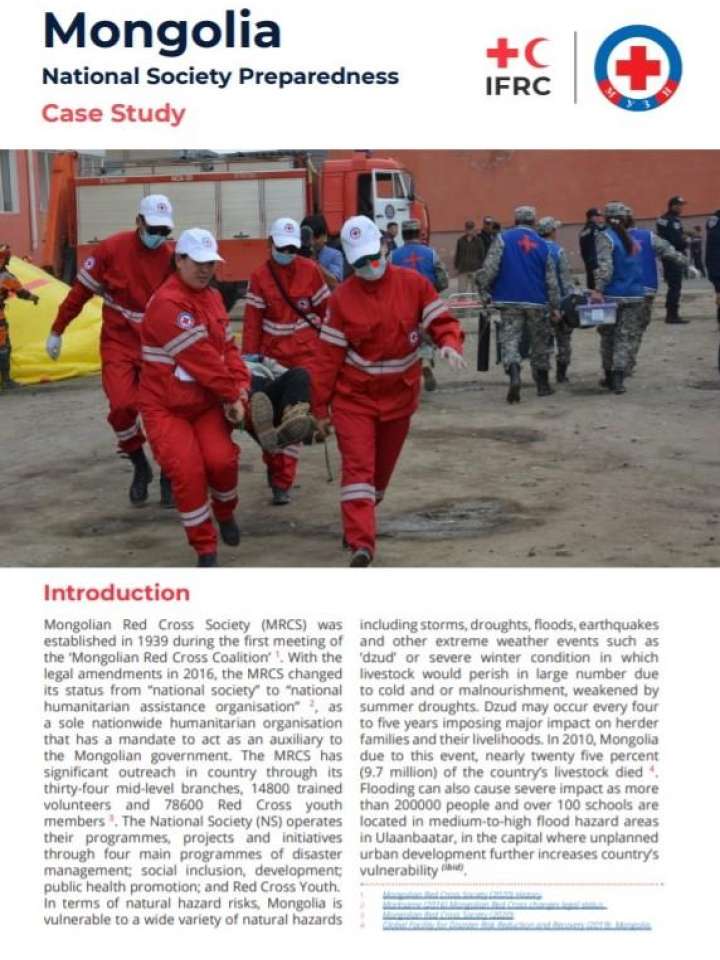Mongolia: National society preparedness case study
In terms of natural hazard risks, Mongolia is vulnerable to a wide variety of natural hazards including storms, droughts, floods, earthquakes and other extreme weather events such as ‘dzud’ or severe winter condition in which livestock would perish in large number due to cold and or malnourishment, weakened by summer droughts. In the future, Mongolia is likely to be adversely impacted by climate change: increased air temperature, increased precipitation, and a reduction in water resources and arable land. The Mongolian Red Cross Society (MRCS) has significant outreach in country through its thirty-four mid-level branches, 14800 trained volunteers and 78600 Red Cross youth members. The National Society (NS) operates their programmes, projects and initiatives through four main programmes of disaster management; social inclusion, development; public health promotion; and Red Cross Youth.
Explore further
